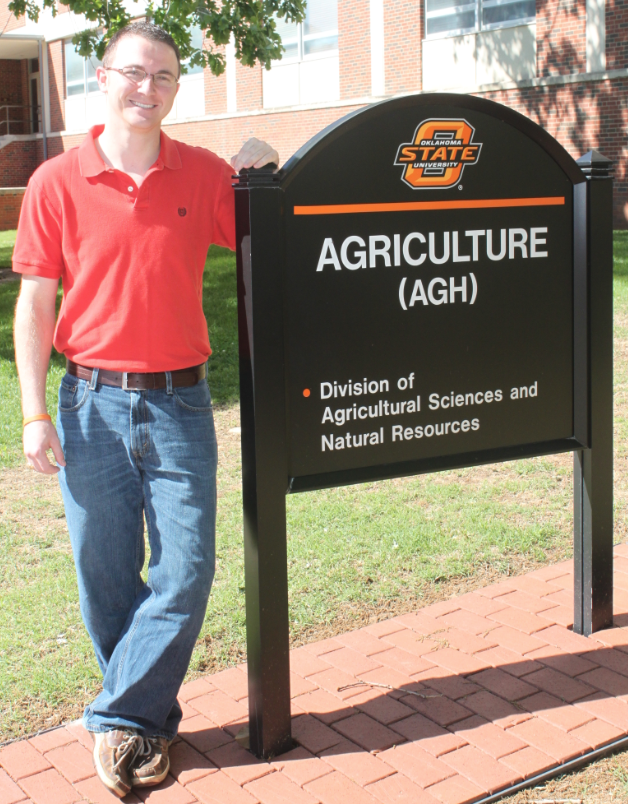Graduate Research: Lance Weaver
Tuesday, May 15, 2012

Hometown: Levelland, TX
Degree program: Master’s of Science in Agricultural Economics
Expected Graduation date: 07/2012
Faculty Advisor: Dr. Jody Campiche
I am evaluating the potential profit or losses that Oklahoma farmers would incur if the Conversation Reserve Program (CRP) was released back into continuous crop production. Oklahoma currently has over 800,000 acres enrolled in the CRP, much of which has been in the program since its beginning in 1985. The Conservation Reserve Program is a highly debated topic in Washington D.C. right now, and by doing this project, it is my hope that both Oklahoma producers and policymakers become aware of what type repercussions might occur if the program was discontinued.
How has your scholarly work been personally rewarding?
Growing up in a region much like Northwest Oklahoma, I feel a connection to the producers we are interacting with in my project. Agriculture is changing rapidly with new technology and implications resulting from evolving policies. I am honored knowing that my project is on forefront of this, and its sole purpose is to provide information to these producers about regions that have never or scarcely been researched.
Why did you decide to attend OSU for graduate work?
In the department of Agricultural Economics at Oklahoma State there was a sincere interest in the success of not only the professor’s scholarly work, but the graduate students, undergraduates, University, state of Oklahoma, and the producers they serve. It was apparent that if I wanted to build a life that hinged on service and continual professional development, Oklahoma State was my door to success.
What has been the most surprising aspect of graduate work?
Last semester I was able to enroll in thesis hours and move to Washington D.C. to work for the Chief Economist of the House Committee on Agriculture. In midst of the Farm bill debate, the highlight of my time in D.C. came in the interactions with the producers who put so much faith in us. My perception of the industry, my career objectives, and my outlook on the way we approach the grassroots of Agriculture completely changed during this time, which can be seen in my thesis work.
How do you think your current endeavors will prepare you for your chosen field after graduation?
With my time in D.C., the rigorous coursework, and the experience working with Oklahoma producers, I feel that my background has shaped me into a professional, ready as any, for the trials that may be faced by a person in industry or academic professional. However, the most important lesson that I have learned is that most learning occurs outside of the classroom, and I am confident my experience at Oklahoma State has equipped me with the tools to continually learn and develop as a professional in the field of Agricultural Economics.
